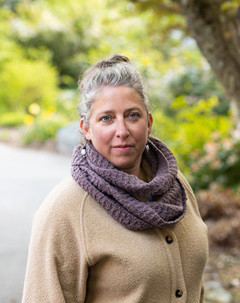Dr. Alexandrine Boudreault-Fournier

Professor
Anthropology
- Status:
- On leave
Accepting graduate students
- Contact:
- Office: COR B330 alexbf@uvic.ca 250-721-7052
- ORCID:
- 0000-0003-0296-8413
- Credentials:
- PhD U of Manchester
- Area(s) of expertise:
- Visual anthropology, sound studies, creative practices, digital media, infrastructure, Cuba, Canada
- Related links:
Bio
I am a multimodal anthropologist whose research projects are led by the production of audio-visual texts such as films, sound clips, drawings, shorter and longer videos, and audio-visual installations. My work in Cuba focuses on the concepts of materiality, infrastructures, circulation, digital media and the consequences of the recent economic crisis.
I am interested in supervising graduate students whose work relates to visual anthropology (film, audio-visual installations), sound studies (including music), creative practices and methodologies, digital media, infrastructure, cultural policies, Cuba, the Caribbean and South America.
Editor-in-Chief of Anthropologica
Interests
- multimodal anthropology
- sound
- creative practices
- digital media
- infrastructure
- cultural policy
- Caribbean, Cuba
- Canada
- Sonoptica
Courses
- ANTH 303 Anthropology of Sound
- ANTH 309 Anthropology and Film and Video
- ANTH 382 Cultural Anthropology Field School Regional Topics
- ANTH 400B Current Trends in Anthropological Theory
- ANTH 499 Honours Seminar
- ANTH 571/671 Advanced Research Seminar in Visual Anthropology and Materiality
